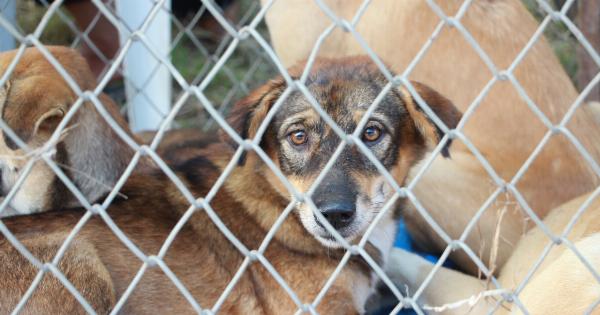Animal cruelty has long been a matter of concern for countless individuals and organizations worldwide.
The unimaginable acts of torture inflicted upon innocent creatures have shocked and appalled many, prompting calls for stricter laws to protect and ensure justice for animals. In a significant step forward, legislation has finally recognized the severity of these crimes by categorizing animal torture as a felony.
This groundbreaking move aims to bring forth justice, accountability, and deterrence for those responsible for such heinous acts.
The Failure of Previous Laws
Before discussing the recent change in the law, it is essential to understand the inadequacies of earlier legislation in addressing animal cruelty.
Previously, animal abuse cases were typically treated as misdemeanors, resulting in lenient punishments such as fines or probation. Such minimal consequences failed to reflect the seriousness and gravity of these offenses, essentially allowing perpetrators to evade true accountability.
As a result, animal cruelty continued unabated, leaving countless innocent creatures at the mercy of heartless individuals.
Redefining Animal Torture as a Felony
The recognition of animal torture as a felony represents a major leap forward in the fight for animal rights.
With this new categorization, the legal system can now adequately address and prosecute individuals engaged in acts of extreme cruelty towards animals. Felonies typically carry severe penalties, including imprisonment and substantial fines.
By assigning such heinous acts the gravity they deserve, the law aims to instill fear among potential offenders and serve as a major deterrent against animal cruelty.
Impact on Animal Welfare
The reclassification of animal torture as a felony has far-reaching implications for animal welfare. Firstly, it sends a strong message to society that the abuse and torture of animals will not be tolerated.
This change marks a shift in societal values, emphasizing compassion and respect for all living beings. The hope is that this increased societal awareness will lead to a ripple effect, promoting kinder and more empathetic treatment of animals in all aspects of life.
Moreover, the reclassification empowers animal welfare organizations and law enforcement agencies to be more proactive in combating animal cruelty.
With stricter laws, investigators will have enhanced tools and resources to pursue cases, gather evidence, and bring offenders to justice. This not only ensures the protection of animals in immediate danger but also helps expose larger networks involved in organized animal abuse.
The Psychological Link Between Animal and Human Cruelty
Studies have consistently shown a strong correlation between animal cruelty and violence towards humans. Many notorious criminals, such as serial killers, have a history of abusing animals before moving on to target humans.
By recognizing animal torture as a felony, lawmakers acknowledge this connection and aim to intervene before such violent tendencies escalate.
Psychologists and experts in criminology argue that those who engage in animal cruelty often display signs of psychological disturbance or a lack of empathy.
By addressing these issues through felony charges, the legal system can better identify and intervene in cases where an individual may pose a threat to both animals and humans alike.
Necessary Support Systems
While the new legislation marks a significant step forward, it is crucial to establish adequate support systems and resources to effectively enforce the law and protect animal rights.
This includes creating specialized units within law enforcement agencies, dedicated to investigating and prosecuting animal cruelty cases. Additionally, collaborations between animal welfare organizations, mental health professionals, and law enforcement can help identify patterns and intervene early enough to prevent further escalation.
Education and Awareness
Education plays a pivotal role in transforming societal attitudes and behaviors towards animals.
By incorporating animal welfare education into school curricula and raising awareness through public campaigns, individuals can develop an understanding of the importance of treating animals with kindness and respect. Early intervention is key, as it helps imprint empathy and compassion as foundational values in future generations.
International Significance
While this monumental shift in law primarily focuses on animal cruelty within a specific jurisdiction, its impact extends far beyond national borders.
The recognition of animal torture as a felony sets an example for other nations grappling with similar challenges. It serves as a beacon of hope, inspiring legal reforms worldwide and encouraging countries to adopt stricter laws against animal cruelty.
By uniting across borders, we can strive for a world where the rights and welfare of animals are prioritized and protected.
Addressing Potential Challenges
As with any legal reform, challenges will inevitably arise. One potential hurdle involves ensuring uniform enforcement across all jurisdictions within a country.
Consistency in the application of the law is crucial, as varying interpretations or lenient sentencing in some regions can undermine the overall impact of the legislation. To tackle this, it is vital for the government to provide clear guidelines and training to law enforcement agencies and judicial bodies on handling animal cruelty cases effectively.
Another challenge lies in raising awareness among the general public about the revised legislation and the importance of reporting acts of animal cruelty. Many incidents go unreported due to a lack of knowledge or fear of retaliation.
Through targeted awareness campaigns and a collaborative effort between animal welfare groups, law enforcement, and the media, communities can be educated about their role in preventing and addressing animal cruelty.
The Continuous Fight for Animal Rights
While the recognition of animal torture as a felony is undoubtedly an immense victory for animal rights activists, the fight is far from over.
Stricter legislation should be accompanied by ongoing efforts to improve enforcement, increase penalties, and provide support for rehabilitation and education programs. Moreover, advocacy for the rights of animals should not wane once the initial momentum subsides, but rather continue to gain strength and push for further reforms.
By collectively working toward justice and dignity for animals, we can create a world where no innocent creature suffers at the hands of human cruelty.
The recognition of animal torture as a felony marks a significant milestone on this journey, but it is only the beginning.































